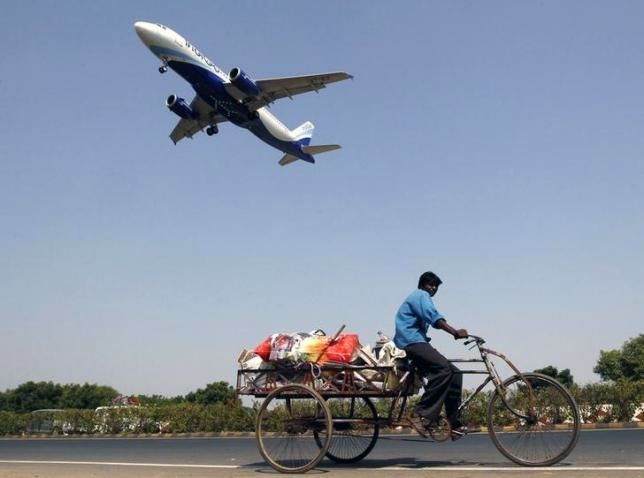The government will impose a two per cent cess on domestic and international air travel, which is likely to make airfares costlier on longer routes.

The much-awaited national civil aviation policy was cleared by the Union Cabinet on Wednesday.
The policy has been finalised after nearly eight months since the Ministry came out with the revised draft in October 2015.
It followed many rounds of deliberations with stakeholders.
Civil Aviation Minister Ashok Gajapathi Raju said the policy is a 'game changer' and that the country's aviation sector is poised to become the world's third largest by 2022.
Here are the 10 key takeaways from the policy:
- To boost regional connectivity, airfares are fixed at Rs 2,500 for one-hour long flights.
- The policy aims at increasing connectivity to smaller towns and cities by offering incentives to airlines. The Centre will refund 80 per cent of the losses incurred by airlines due to the cap in fare on such routes.
- To fund the subsidy element, government will be imposing a two per cent cess on domestic and international air travel, which is likely to make airfares costlier on longer routes.
- Government scraps 5/20 norms to allow Indian carriers to fly abroad. An airline can fly abroad if it has a fleet of 20 planes. It doesn't need to have operated in the domestic sector for five years to fly in foreign skies.
- Self-handling policy for airlines will now be allowed. The aviation policy has made refund policy stricter, which is good for customers. However, it will hit the airlines' profit.
- The policy also proposes real time safety tracking.
- New operators like Vistara, Air Asia will benefit tremendously from this policy.
- The new policy will promote balanced regional growth, tourism, infrastructure and help improve the ease of doing business.
- The new policy will focus on cargo, maintenance, repair and operations and skill development.
- The government has liberalised code sharing so airlines can tie-up with foreign carriers for any destination within India on a reciprocal basis.
Image: An IndiGo Airlines aircraft prepares to land as a man paddles his cycle-rickshaw in Ahmedabad. Photograph: Amit Dave/Reuters











 © 2025
© 2025